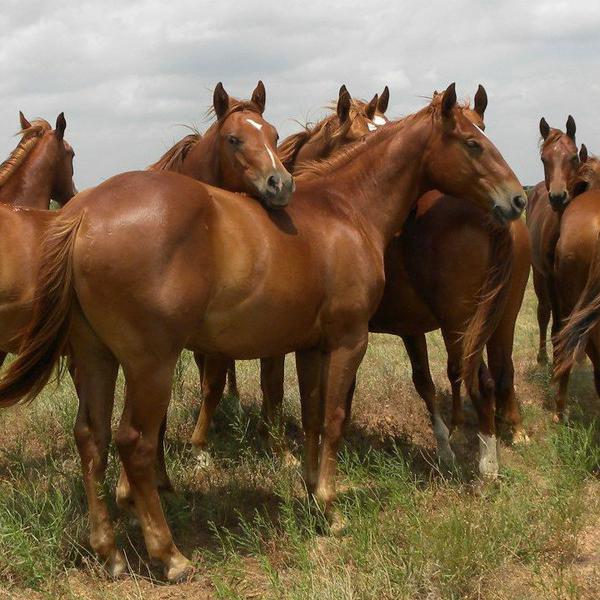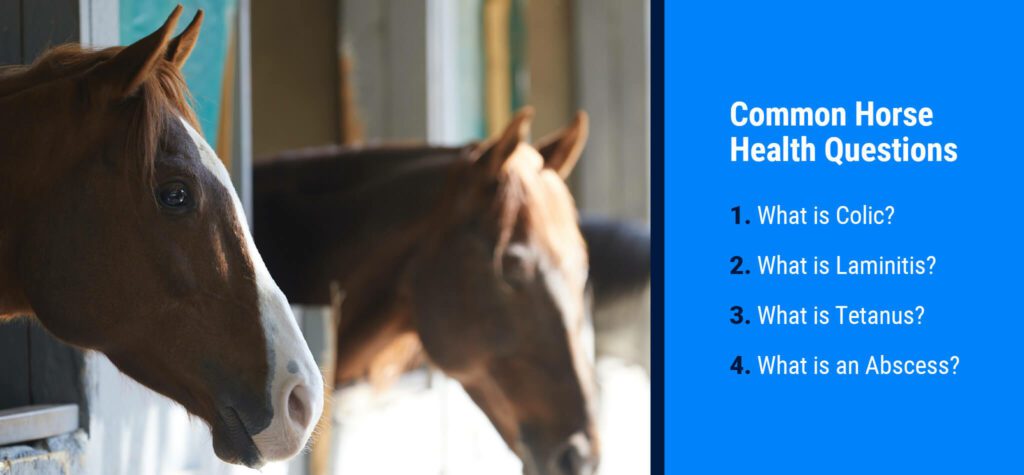Top 4 Horse Health Questions

You love your horse and want only the best for your dear equine. To ensure that your horse is in peak condition, you’ll need to pay close attention to how they’re acting and feeling. If something seems off, you’ll want to contact your equine veterinarian immediately for a thorough exam to ensure good health.
Here are four of the top horse health questions you may want to keep in mind as you get to know your horse.

What Is Colic?
The word “colic” means “belly pain.” This pain may be minor to severe. Colic is one of the most common horse diseases and one of the leading known causes of horse deaths.
Colic is a digestive issue which can cause serious damage to the intestinal tract. If left untreated, the intestines may twist or even tear. This would cause sudden death without immediate surgery. Many horses don’t survive the surgery, and it’s very expensive. If colic is suspected, call the veterinarian immediately.
Colic may be caused by worms, sand in the gut, gas, spoiled food or any type of obstruction. If the horse is lying down, seems lethargic or is biting at their stomach, they may have colic. In more serious cases, the horse may thrash and break out in a sweat.
Keep your horse up and walking to help pass the gas while you’re waiting for the veterinarian to arrive. Don’t let your horse lie down and thrash about.
What Is Laminitis?
Laminitis is caused by overeating grain or by eating too much lush grass without proper exercise. This can allow toxins to build up inside of the horse’s hooves and cause the bones in the hooves to drop and rotate.
Typically, only the front hooves are affected, and the best thing to do is to keep the horse confined in a small area and put his front feet into a bucket of ice water to offer some relief.
The condition is very painful and will cause the horse to arch his or her back in pain and put more weight on the hind feet. Call the veterinarian right away and remove all grain from the diet until the veterinarian approves it.
Corrective shoeing may be required to help alleviate the condition, and the horse’s diet should be more closely monitored.
What Is Tetanus?
If a horse gets a puncture wound or a deep cut, they may have been exposed to tetanus. Horses are far more susceptible to the condition than humans. Symptoms of tetanus include tensing of the jaw, locking jaws or an exposed third eyelid. The condition may be prevented by simply having your horse vaccinated annually.
What Is an Abscess?
Many horses will get an abscess if they have an injury such as a puncture wound from a nail or a sharp stone. The injured area will become infected, and soon it will be hot to the touch.
This is a painful condition, and the veterinarian needs to be called to treat it quickly. The veterinarian will open the abscess and drain out the infection. Medication will be applied in the form of a poultice and perhaps soaking. Sometimes, antibiotics may be applied or injected as well.
Keep these top horse problems and solutions in mind the next time your horse is exhibiting symptoms.
